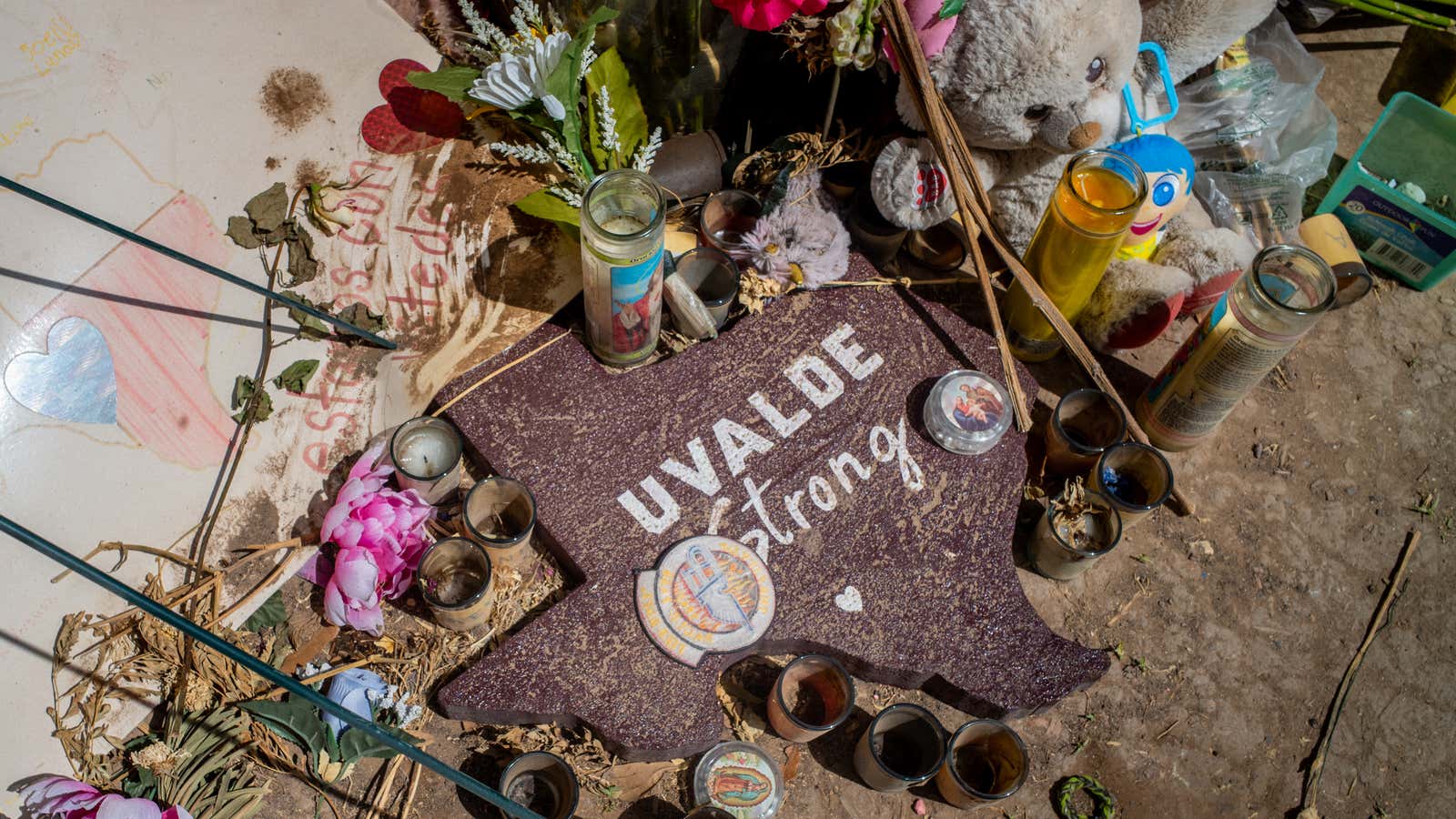Texas is inviting parents to collect and safely store fingerprints and a DNA sample of their children in case of an emergency. Five months since the second-deadliest school shooting in the US, the initiative brought to mind the state authorities’ reluctance to tackle one of the leading causes of death for minors in the US—firearms.
In line with a 2021 law, the state’s public school system has started to distribute “inkless, in-home fingerprint and DNA identification kits.” The voluntary ID system is recommended by the state so parents have it handy to submit to “federal, state, tribal, or local law enforcement to help locate and return a missing or trafficked child,” the 2021 Texas Education Code reads.
The provision of ID kits to schoolchildren has inevitably reminded parents of the Uvalde school shooting. In May, when a gunman killed 19 students and two teachers at Robb Elementary, parents were asked to provide DNA samples to help identify the deceased children.
DNA test kits for kids have existed for decades. In Texas, the program first emerged in 1999, under then-governor George W. Bush, and also took place under Rick Perry’s administration in 2006. Similar programs exist or have been enacted in other states. But the timing of the distribution in Texas this year is striking a sour note for parents and children still reeling from the mass shooting, as national school security consultant Kenneth S Trump told Houston Chronicle. Instead of quelling discomfort, it could create more frustration and anxiety—something that emerges clearly from the social media posts on the subject.
Texas’ timeline on dealing with shootings…
March 2018: A 17-year-old gunman kills 10 at Santa Fe High School.
June 2021: Texas passes the law tasking the state’s education agency with providing DNA kits
May 2022: A mass shooting at Robb Elementary School in Uvalde claims the lives of 19 children and two teachers. The 18-year-old gunman uses two AR-15-style rifles as law enforcement waits around
June 2022: Texas leaders commit over $100 million to bolstering safety and mental health services at schools. Over half for bullet-resistant shields for school police officers, and the second-largest chunk—$17.1 million—for school districts to buy silent panic alert technology
…without gun reform
Pleas for tougher gun laws have been falling on deaf ears. And with the kits, it’s like the state is giving up on keeping kids safe altogether, some say. Authorities would rather this half-baked measure than implement common-sense gun laws.
Texas governor Greg Abbott, who has signed laws to make it easier to own and carry guns in the state, has repeatedly pushed back against raising the age for buying assault weapons from 18 to 21, calling it “unconstitutional.”
Other efforts by Democrats to toss out assault weapons fully à la the 1994 ban and expand universal background checks, have been suppressed by Republican legislature.
Instead, leaders recommend schools fortify their security, including arming teachers and other school employees. Texas senator Ted Cruz also proposed having just one door with armed officers at every school—a proposal criticized as infeasible and a potential fire hazard.
By the digits: Child ID DNA kits
3.8 million: Texas kids who could bring home a kit this month
$9.95: Retail price of one DNA kit, a three-fold pamphlet to log a child’s physical description, record an inkless fingerprint, and place a saliva sample on the paper
$2.95: Cost of a kit for schools and law enforcement
177: School shootings in Texas, the second-highest number among US states after California
10%: Share of K-8 students who’d get the kits in year one
$5.3 million: Cost of the program in year one (based on an estimated test kit price of $15 to be delivered to 10% of K-8 students)
Related stories
🙅 Britain ended the horror of school shootings after one single massacre
